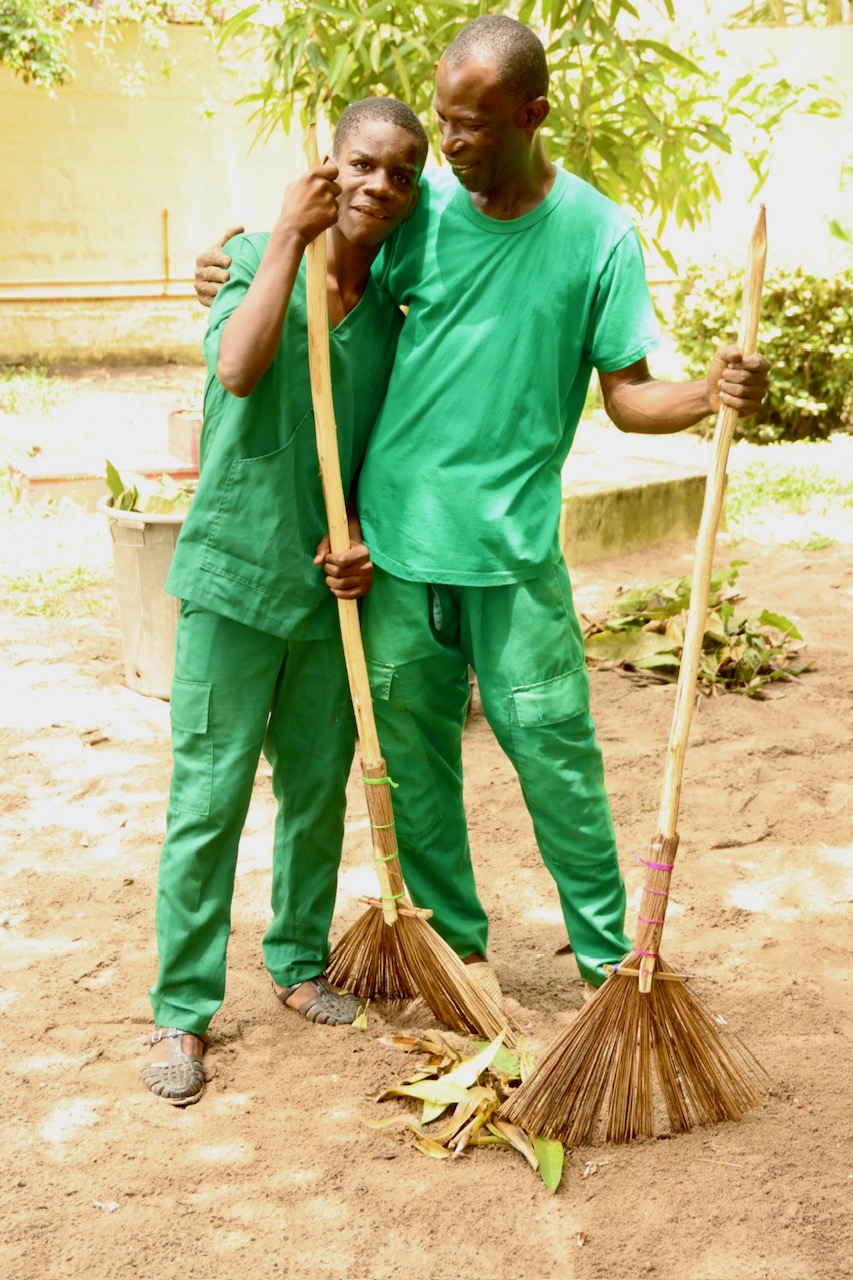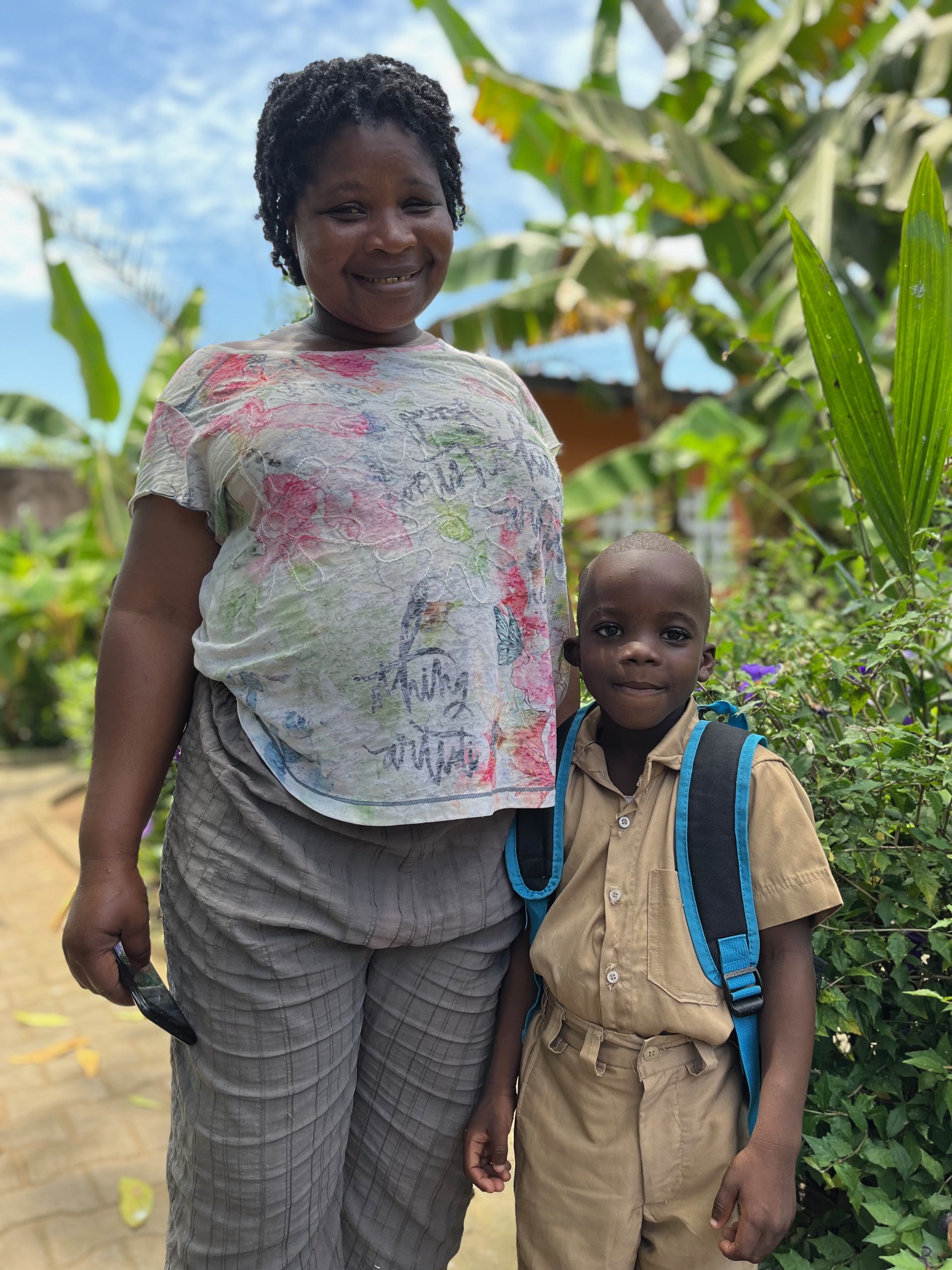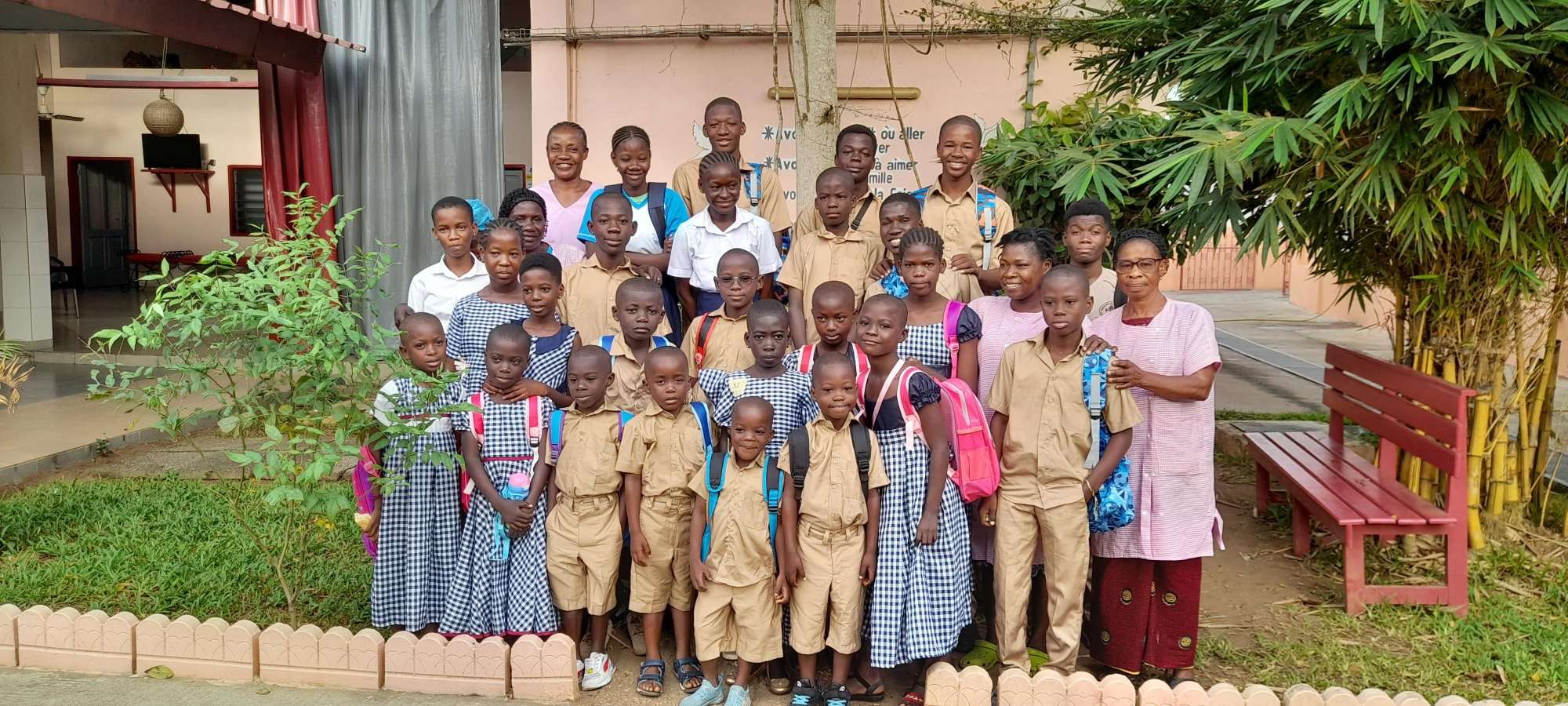Dear Sponsors
Time slips through my fingers. It's always been like that, but for a few years now this impression has increased. In the past, everything was always doable, but lately I've been increasingly feeling like I'm getting nowhere. I'm sure it has to do with the years I've lived. I've been married to Aziz for fifty-one years now, we've raised three children, had three grandchildren, and meanwhile we've been realising our project: The Centre of Hope. Yes, a lot has come together. I don't want to miss any of it.
Yes, I am in Bassam. I like being here and I love the routine: one day follows another. They are often similar and yet never the same. I get up at five thirty and am at the hospital at six to see our patients, whose days also start so early. Yesterday, one patient was fortunately a little better, so we were able to take her to town for a neurological check-up. On the other hand, another patient had such a bad night that it was impossible to keep the appointment with his ophthalmologist.
However, our driver not only takes the patients to their respective appointments, but also our older children to school in town and therefore has to leave very early, shortly after six o'clock. The younger children have to be out of the house by seven o'clock at the latest so that they can get to school on time. They must be punctual, because if they are even one minute late, the door stays locked. When everyone has left, I go for a walk through our village Ayobâ to our seniors. What peace and quiet! Most of our seniors are still asleep, but some, like me, are already walking, doing their morning exercise, or just sitting in front of their hut. I can't help but smile when I see that the door of the chicken coop is already open. All is quiet here, it's a little oasis of peace, it smells of coffee from the kitchen, the night watchman greets me, then locks away his torches and goes to a well deserved sleep. At around seven forty-five, I enjoy my breakfast and then head to my office.
What awaits me after my "Suivant! - that is: "The next one please" - I never know. They are mothers who have been abandoned. Fathers who are unemployed and cry inconsolably because they can no longer feed their family, which is a shame in Africa. Women with cancer asking for help, people with diabetes or high blood pressure. Children with a haemoglobin level of five (!) grams, when the normal value should be at least eleven, and who, should they get a malaria attack, would therefore hardly survive it. Old people who have a heart condition or Alzheimer's disease. Young people with no prospects for the future who seek comfort in alcohol and drugs. I see about two hundred people a day who are in a bad way. They confess to me with shame how they have become beggars because life has become so expensive. It is unbelievable, the country is becoming more and more modern, the people poorer and poorer. The pride of the politicians is to build the most modern infrastructures, while the people are slowly dying. Not a day goes by that I don't cry in my office because of all the injustice and all the suffering. And when I also see a mother whom I cannot give hope that her sick child lying in her arms will survive, I feel drained of all my strength. And yet it goes on. It must. "Suivant!"
THE STORY OF JEREMY
Jeremy came to us when he was just over a year old. This was sixteen years ago. He was brought by a seventeen-year-old man, who turned out to be his father. He came to visit his son regularly at first. But when he realised that Jeremy was not developing like other children, he stopped coming. Where is he? We don't know, we have no trace of him anymore. It is important to know that many of the African children who show cognitive impairment are scorned as "evil spirits" or "witches" and killed. So Jeremy was very lucky that his father entrusted him to us. We found a special school for him, founded by a French woman, where Jeremy was welcome. After ten years, he had learned everything they could teach him, which meant we had to find a new solution for him. We heard about a public home for "such" children about ninety minutes away from us by car. So we wanted to have a look there. It took us six hours to get there. The various construction sites in the city, for high-rise buildings and a new metro, lead to huge traffic jams again and again - we had to make countless detours. When we finally reached the home, we were greeted by screaming, crying and shouting. I can hardly describe what I saw there, it was terrible, inhuman, the scenery resembled a prison or a psychiatric hospital from very old days. One hundred and five children are cared for there by barely forty employees - all of them untrained. A nightmare. My driver and social worker, who had accompanied me, were as shocked by the circumstances as I was, so after a brief chat with the home's director, we got back into the car and drove back to our centre of hope. We were back by one o'clock in the morning. Our Jeremy in this terrible place? He, who receives attention and love from all his "brothers and sisters" who live with us, from our nannies and the staff at the Centre? Put him, who is happy and rooted with us, in such a home? NEVER! Jeremy understands everything we say, has his own language that we all understand here. No, Jeremy must not be torn from this life here, he would die of grief. So I spoke to our gardener, a kind, calm man, and explained my problem. He also knows Jeremy very well and knows that Jeremy likes to work. So Jeremy got the same work uniform as him and has been helping in the garden ever since. The two of them are already a well-rehearsed team and Jeremy is happy because we are his family, he is at home here.
 Jeremy is happy to help in the garden
Jeremy is happy to help in the garden
THE STORY OF SALLY
Sally was brought to us just about five years ago - a heavily pregnant young woman who was apparently suffering from epileptic seizures and mental impairment. She had fallen in love with a young man, but when he found out about her pregnancy, he ran away. Being pregnant without being married was considered a great sin in her family, so she was thrown out of her home. This is how she came to Abidjan and slept under a table in the night market. She told me that the men gave her a hundred francs CFA - that's about 15 cents - every time she gave herself to them. She had to feed herself somehow. But because she often had her epileptic seizures, she was also chased away from there. And so we took her in. We brought her to a neurologist, she got medication, love, attention, and her son Oumar was delivered by caesarean section two months after she moved in with us - a spontaneous birth is too big a risk with epilepsy, both for the mother and the child. Today she lives in our village Ayobâ. Not because she is old and sick like the other residents, no, but because she has nowhere else to live. She is happy, helps in the kitchen, does the laundry. She sings all the time and always has a little radio with her. And little Oumar goes to the same school as our other children from the centre. He is a clever little boy and will surely become a "Grand Monsieur" one day, as they say here. All the people who suffer from illness and have no shelter are welcome here, they are people nobody cares about. I once read in a book what the meaning of our life is, and it said: "To have someone to tremble for.”
 Sally and Oumar, who is now also allowed to got to school
Sally and Oumar, who is now also allowed to got to school
Dear sponsors, thanks to you we were once again able to enrol eight hundred and fifty children in school this autumn. Eight hundred and fifty children who have a better future, who will hopefully find work and who will one day be financially independent. Freer, happier and healthier people - thank you from the bottom of my heart. God bless you for your generosity.
I hope you are all doing well!
With best wishes
Lotti Latrous




